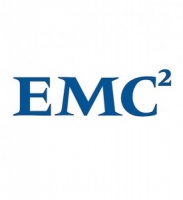Wide Merger Arb Spread Has EMC (EMC) Investors Frustrated

Get Alerts EMC Hot Sheet
Rating Summary:
14 Buy, 25 Hold, 0 Sell
Rating Trend: = Flat
Today's Overall Ratings:
Up: 11 | Down: 18 | New: 17
Join SI Premium – FREE
As widely reported last week, EMC (NYSE: EMC) agreed to be acquired by Dell for $33.15 per share, or $67 billion. The deal is made up of $24.05/share in cash and 0.111 shares of a new VMware (NYSE: VMW) tracking stock for each share of EMC currently held.
Notably, the spread on the deal is substantial. With the drop in VMware stock, the deal is currently worth $31.82/share to EMC shareholders yet the stock is trading at $28.16, giving it a 13% spread. Normally deals trade with spreads of around 2-3%. This has left EMC investors frustrated and asking why the spread is so large.
Bernstein analyst Toni Sacconaghi, who was surprised by the deal, tried to answer those questions.
Sacconaghi said the large discount in EMC's share price appears to principally reflect concern over the value of the VMware stub, including increased VMW public liquidity, arb trading considerations and the long time to deal close. The stock reflects:
- Concern over the value of the tracking stock, which will have no voting rights, and accordingly may trade at a discount to VMW's stock price;
- Moreover, the tracking stock (which will be shares that reflect Dell's ownership share in VMware) will increase effective liquidity of VMW, likely pressuring the value of VMW.
- The traditional merger/arb trade is to short VMW and be long EMC, putting near term pressure on VMW stock. Moreover, the trade is further complicated by the fact that there will be more shares of the tracking stock trading than VMW, which could make closing out VMW short positions at the time of deal closure difficult. This appears to be contributing to the prevailing large deal spread.
- Additionally, the long time to deal closure (estimated to be mid-2016) may be weighing on investors, a period during which fundamentals for EMC could deteriorate (particularly given Q3 performance; we note that EMC has guided down revenues twice already in 2015, and may be poised to do so again on its Q3 earnings call). Additionally, interest rates could materially change, potentially putting the transaction at risk, although we note that Dell's break-up fee is meaningful at $4B; however, it is unclear under what conditions Dell's break fee would apply if financing terms or availability changed due to macro or market conditions.
Overall, the analyst said the $33/share price represents a good price for EMC, coming at a 28% premium since news of the deal first broke on Wednesday evening, and a 32% premium vs. the average trading price of EMC over the last 3 months. Also, the acquisition price is about 18x non-GAAP EPS, and about 15x EV/current year free cash flow, both of which are highest among a peer group of relevant large cap enterprise hardware and software companies.
Sacconaghi said the list of alternative buyers is limited and he believes the likelihood of EMC receiving another bid is low. The analyst highlighted the following potential alternative suitors:
IBM (NYSE: IBM): Incredulously, IBM has never completed an acquisition for >$4B, and has net debt; a big bet on hardware and its ability to successfully integrate a large company seems unlikely.
HPE (NYSE: HPQ) (NYSE: HPE): Arguably, HPE would likely have the best strategic fit with EMC, with stronger server, networking and services businesses than Dell (and no legacy PC business). That said, given its postsplit market cap of ~$30B, and likely need to structure any transaction as a Reverse Morris Trust, we believe a deal would likely need to be financed as merger of equals, with EMC shareholders principally receiving stock in the new combined company - which we believe would likely be viewed as inferior to Dell's offer, unless the consideration was meaningful higher, with appropriate downside collar protection.
Oracle (NYSE: ORCL): (covered by Mark Moerdler). With Larry Ellison as Chairman, ORCL is the most unpredictable potential acquirer, but we believe that ORCL likely does not believe it needs a legacy storage vendor (or least one as big as EMC) to fulfill its vision of converged infrastructure, and given the poor performance of its Sun acquisition, we believe that another acquisition with another large, challenged hardware business is unlikely.
On the financing for the deal, the analyst said he was surprised given the estimated $45 billion in debt raised and that both EMC and Dell have transactional business models, and face structural headwinds as on premise providers.
Serious News for Serious Traders! Try StreetInsider.com Premium Free!
You May Also Be Interested In
- Sony/Apollo bid for Paramount could be worth as much as $29 billion - Source
- HUB Cyber Security (HUBC) Strongly Responds To Dominion’s Misleading Lawsuit; Reaffirms Dedication To Expansion And Worldwide Customer Support
- ContextLogic (WISH) Receives Stockholder Approval of Transaction with Qoo10
Create E-mail Alert Related Categories
Analyst Comments, Mergers and Acquisitions, RumorsRelated Entities
Larry Ellison, Earnings, Definitive Agreement, Toni SacconaghiSign up for StreetInsider Free!
Receive full access to all new and archived articles, unlimited portfolio tracking, e-mail alerts, custom newswires and RSS feeds - and more!



 Tweet
Tweet Share
Share